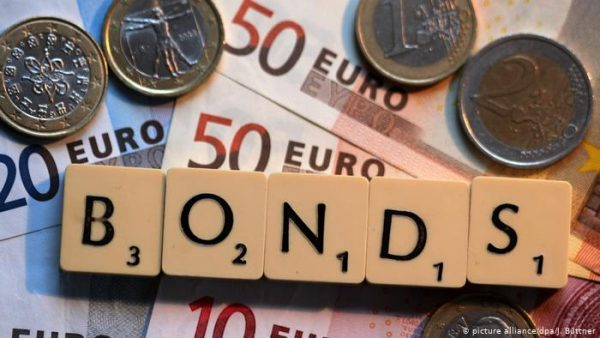
The primary deficit in 2021 is expected to be 1.5% to 2.0% of GDP lower than estimated in the state budget, contributing, along with strong growth, to a significant de-escalation of public debt estimated at 183% of GDP in 2022 from 206 % in 2020, according to an analysis by the National Bank.
The execution data of the General Government budget for the whole of 2021 suggest that the oversupply against the annual target of the State Budget was even higher than we had estimated in mid-December. Specifically, the General Government primary deficit (on a modified cash basis) shrank by almost 40% per year (or by € 4.6 billion), falling to 4.2% of GDP in 2021 from 7.3% of GDP in 2020 .
Although the available data are not fully in line with the ESA 2010 standard and the definition of Enhanced Supervision, the observed reduction in the cash deficit foretells a significant improvement, even if approximate negative cash adjustments are included, as defined above. In particular, it is estimated that the annual reduction of the primary deficit in 2021 could – under the definition of Enhanced Surveillance – be around 2% of GDP, with the deficit reaching around 6% of GDP in 2021 or even lower, from 7.9 In addition, the estimated performance for 2021 creates a more favorable starting point for 2022, a year in which significant fiscal challenges continue, mainly related to the emerging escalation of the energy crisis, as well as the effects of the pandemic. , while at the same time seeking to balance the budget after a two-year intense expansion.
This positive debt development is expected to support the country’s ongoing effort to recover its investment grade, sending a signal of confidence that is particularly useful in the current phase of rising bond interest rates (following growing indications by the ECB of a gradual normalization of policy).
The double-digit growth rate of economic activity from the second quarter of 2021 onwards allowed the phasing out of emergency support measures in the second half of 2021 – after about 1½ year of significant fiscal expansion, during which fiscal support measures amounted to € 33 billion (gross value).
The accelerating GDP growth during 2021 – which is estimated to eventually exceed 9.5% at constant prices compared to the forecast of 6.9% in the State Budget 2022 – supported both directly and indirectly fiscal performance, with the primary General Government balance sheet (modified cash base) to show a surplus of 0.8% of GDP in the second half of 2021, compared to a deficit of about 5% of GDP in the first half of the same year and 7.3% in 2020. In addition, increased inflation in the 4th quarter of 2021 (+ 4.5% on an annual basis, compared to + 0.2% in the 9 months of 2021) also supported tax revenues, further strengthening the tax base in nominal terms, given that domestic demand (in stable prices) is estimated to have remained strong, due to the significant increase in real disposable income of the private sector in the 9 months (estimated increase of 12.0% on an annual basis), amid continuous improvement in the labor market and confidence building and the economic climate.
A key role was played by the strong reaction of tax revenues to the recovery of the activity, with their annual growth even exceeding the estimated GDP growth rate at current prices (approximately + 10%). Specifically, tax revenues increased by € 4.9 billion on an annual basis (+ 11.4% per year), reducing the primary deficit by 0.5% of GDP on an annual basis.
In particular, VAT revenues increased by 16.1% per year in 2021 (or by € 2.4 billion) – representing almost half of the increase in total tax revenues in 2021 – while exceeding the target by € 0.4 billion of the budget.
The biggest positive surprise, however, came from corporate income tax revenues, which increased by 43% year-on-year (€ 1.0 billion higher than 2020), reflecting the rapid recovery of business activity, with profitability (gross operating surplus) and the turnover of companies to increase by 14.8% in the 9 months and by 21.1% in the whole year, respectively.
On the expenditure side, the phasing out of support measures in the second half of 2021 and favorable cyclical conditions, led primary expenditure to better-than-expected performance, as it fell by 3.2% of GDP per year (€ 1.8 billion below the Budget target), despite additional budget expenditure support in the first half of 2021 due to the pandemic, compensation for natural disasters and subsidies for heating needs. Indeed, net current transfers were € 0.8 billion lower than budgeted, with only partial use of the budget appropriations being allocated.
The 2021 overperformance is a more favorable starting point and strengthens the fiscal adjustment effort in 2022, accelerating the balancing of the primary balance despite the significant fiscal challenges mainly related to the energy crisis, as well as the evolution of the pandemic.
The above forecast results from the application of the realistic, in our estimation, assumptions of the 2022 Budget regarding the annual changes of all key fiscal components (categories of revenue, expenditure) for 2022 and from the strongest fiscal results that emerged in 2021. At the same time, the estimate takes into account the additional budgetary costs of the measures announced at the beginning of 2022 (approximately € 0.4 billion, mainly related to the 13% reduction of ENFIA – higher than that which was included in the Budget – and the additional benefits for suspended workers, employed in sectors affected by pandemic mitigation measures).
In addition, the above improvement is expected to be combined with a dynamic increase in public investment, in line with the existing Budget targets for 2022 (including Recovery Fund expenditures). Public investment spending as a whole is expected to grow by 23% per year to € 11 billion in 2022, with the share of public investment in GDP reaching a high of 18 years, around 5.7%, supporting growth and creating positive secondary effects on economic activity, given the high multiplier effect of public investment on GDP.
The consequence of the above developments is the rapid de-escalation of the level of public debt to GDP, with the impact of the pandemic on the debt-to-GDP ratio almost disappearing by 2022, about 3 years earlier than originally expected.
According to our estimates, the debt of the General Government will be reduced to 192% of GDP in 2021 (from 206% in 2020) and is projected to move below 183% in 2022, significantly lower than the 2022 Budget forecast (197% and 190% for 2021 and 2022 respectively), due to fiscal outperformance in 2021 and, mainly, due to strong growth rates.
Latest News

DM Dendias: We talk With Turkey But We Always Bring Up Their Unacceptable Positions
Second and last day of closely watched conference, entitled 'Metapolitefsi 1974-2024: 50 Years of Greek Foreign Policy', also included appearances by PM Mitsotakis, Ex-PM Tsipras and PASOK leader Nikos Androulakis, among others

Rhodes Airport Tops Fraport Greece’s Regional Airports in 2024 Performance
According to Fraport's data, more than 35 million passengers (specifically 35.2 million) were handled by Fraport-managed airports during the 11 months.

European Central Bank Cuts Interest Rates by 25 Basis Points
It is the fourth cut of interest rates by Europe’s central bank, a move expected by the markets and financial analysts leading to the rate settling at 3%.

Airbnb: New Measures Add €600 in Extra Costs for Property Owners
Property managers face an immediate administrative fine of 5,000 euros if access to the inspected property is denied or any of the specified requirements are not met.

Economist: Greece Included in the Best Performing Economies in 2024
Meanwhile, Northern European countries disappoint, with sluggish performances from the United Kingdom and Germany.

EasyJet Expands Its Routes from Athens
The airline’s two new routes will be to London Luton and Alicante and they will commence in summer 2025.

Capital Link Forum Highlights Greece’s Economic Resurgence; Honors BoG Gov Stournaras
Capital Link Hellenic Leadership Award recipient, Bank of Greece Gov. Yannis Stournaras, an ex-FinMin, was lauded for his pivotal role during Greece’s economic recovery

Tourist Spending in Greece Up by 14%, Visa Card Analysis Shows
Greece’s capital Athens emerged as the most popular destination, recording a 17% increase in transactions with Visa cards, surpassing even the cosmopolitan island of Mykonos.

Inflation in Greece Unchanged at 2.4% in Nov. 2024
The general consumer price index (CPI) posted a 0.4% decrease in November compared to the previous month

2024 Christmas Holidays: Extended Shop Hours Schedule
The 2024 Christmas Holidays extended shop hours schedule commences on Thursday, December 12 and runs until the end of the year.



![Φυσικό αέριο: Δυναμικό come back του LNG στην Ελλάδα [γραφήματα]](https://www.ot.gr/wp-content/uploads/2023/01/OT_naturalgas-90x90.jpeg)











![Fraport: Πάνω από 35 εκατ. επιβάτες στα αεροδρόμια το 11μηνο – Πτώση στη Μύκονο [πίνακας]](https://www.ot.gr/wp-content/uploads/2022/06/fraport-90x90.jpg)


























 Αριθμός Πιστοποίησης Μ.Η.Τ.232433
Αριθμός Πιστοποίησης Μ.Η.Τ.232433